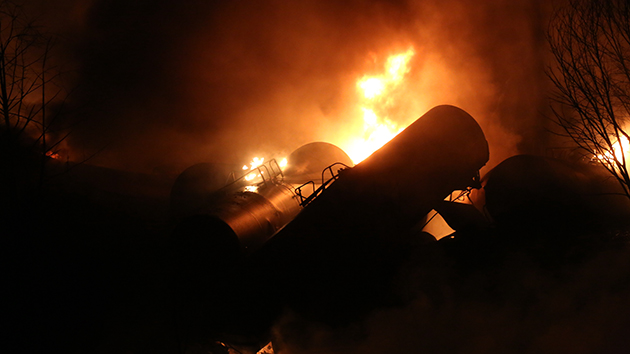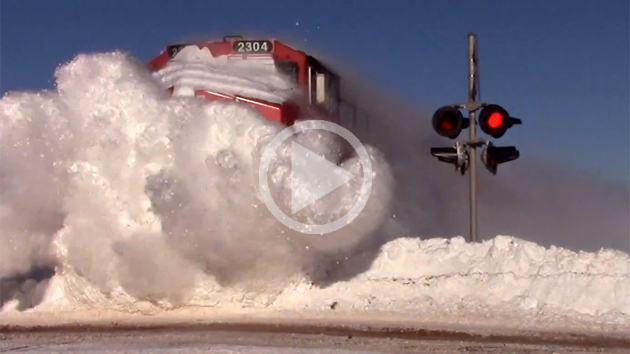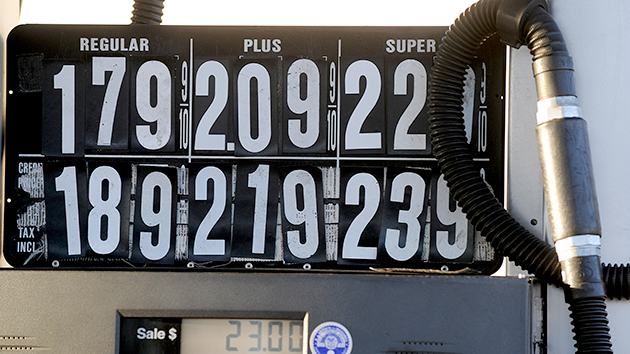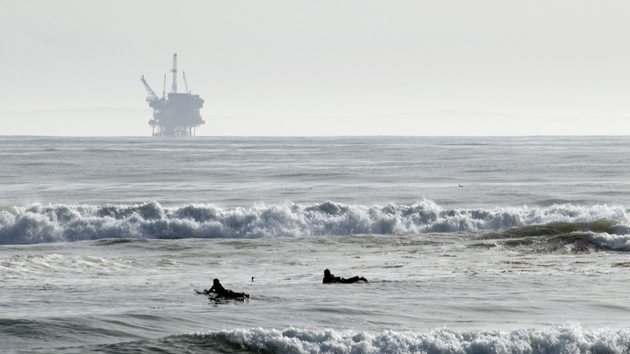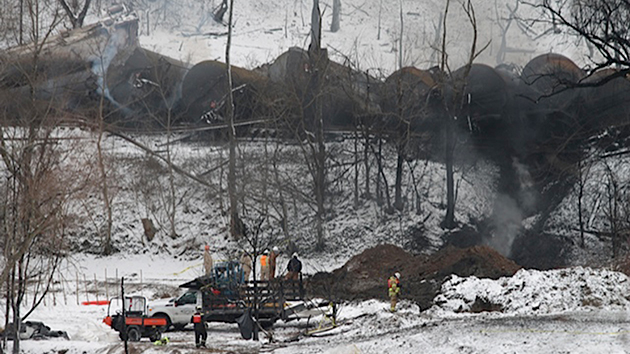
An oil train smolders after it derailed and exploded in West Virginia last week.Curtis Tate/ZUMA
Last week, a train carrying oil from North Dakota derailed in West Virginia, spilled oil into a river, and sent a horrifying fireball shooting into the sky. The incident came only a few days after another oil train spill in Ontario. In fact, in the last few years the number of oil train accidents has skyrocketed, thanks to booming production in the northern US and Canada that has overwhelmed the existing pipeline network.
Oil train accidents like those could become a regular fixture in headlines across the US, according to a Department of Transportation analysis uncovered by the Associated Press over the weekend:
The federal government predicts that trains hauling crude oil or ethanol will derail an average of 10 times a year over the next two decades, causing more than $4 billion in damage and possibly killing hundreds of people if an accident happens in a densely populated part of the U.S.…
If just one of those more severe accidents occurred in a high-population area, it could kill more than 200 people and cause roughly $6 billion in damage.
The report blamed the projections on the drastic uptick in oil-by-rail traffic, as well as on severely lagging safety standards for rail cars (check out our in-depth multimedia story on the latter here).
